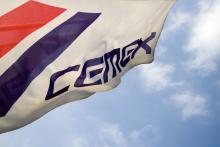
Since 2019, 100% of CEMEX's electricity in the UK has come from renewable sources. The company secures its renewable electricity across all its operations in the UK from energy, services, and regeneration company, ENGIE, supplying electricity to over 150 CEMEX UK sites for more than ten years. CEMEX has recently extended this initiative until the end of 2023.
In 2020 CEMEX announced a similar commitment for its 32 plants in Poland. All electricity consumed in Poland is generated from renewable sources, including wind energy, via its long-standing energy partner PGE Obrót. In September, CEMEX announced that together with its partner Synhelion, it had developed an innovative technology that eliminates carbon dioxide (CO2) emissions in the cement production process by using solar energy. CO2 emissions will be captured and converted into synthetic fuels using Synhelion technology. CEMEX and Synhelion expect to have a demonstrative pilot by the end of 2021.
Moreover, in 2021 CEMEX expects to complete a 41-megawatt (MW) solar project in the Dominican Republic, which will partially supply the company's cement operations and a 4.5MW Waste Heat Recovery project in the APO cement plant in the Philippines.
In 2020, CEMEX announced its Climate Action strategy, defining a global target of a 35% reduction of CO2 emissions per ton of cementitious products by 2030. For its operations in Europe, CEMEX also defined a 55% reduction target, in line with what the European Commission set as a new goal for all its member states. To complement this strategy with a longer-term vision, CEMEX also established an ambition to deliver net-zero CO2 concrete to all its customers globally by 2050.








